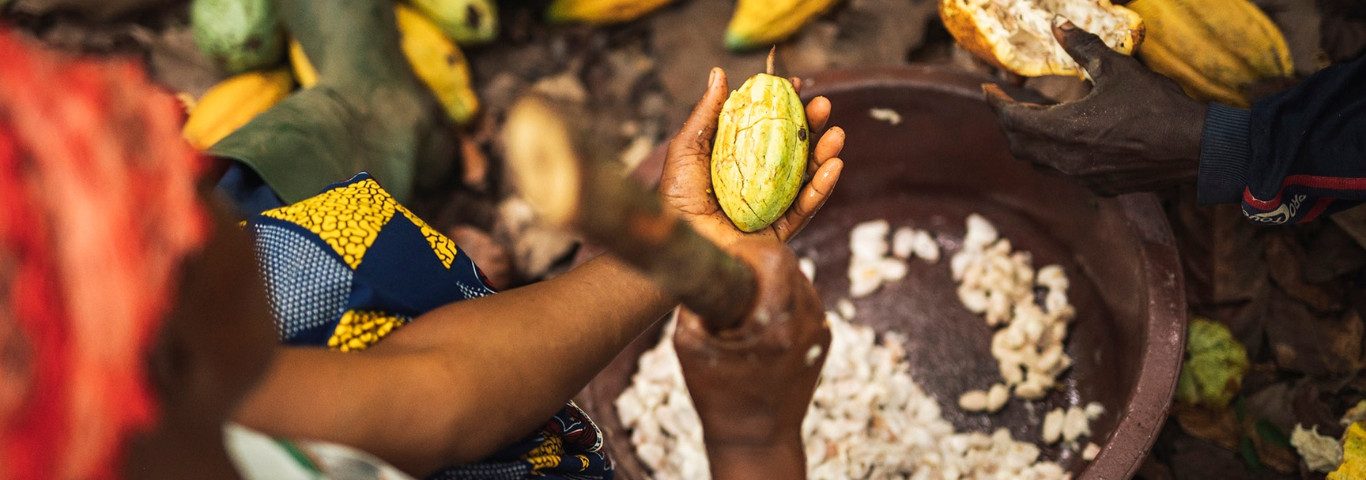

Beyond the Label: Why Fairtrade Is Changing the Future of Food
In honor of Fairtrade Month, KeHE® is celebrating the movement that supports fairer wages, safer working conditions, and more sustainable practices for farmers and workers worldwide. Much more than a label, Fairtrade is a commitment to ethical sourcing and stronger, more resilient communities.
For retailers and suppliers, it’s also a chance to meet rising consumer demand for transparency and value-driven products. In this Q&A, we’ll explore what Fairtrade means, why it matters, and how businesses can succeed by enlisting experts to share their insights.
Katie Kowalski, Director of Commercial Partnerships at Fairtrade America, shares her perspective on Fairtrade and how it’s shaping the future of global trade.
Q: What is Fairtrade, and why does it matter today?
A: We’re part of the movement to make trade more equitable for farmers and workers in historically disadvantaged communities. At Fairtrade America, the U.S. branch of Fairtrade International, we’re part of this movement, partnering with businesses, retailers, and shoppers to support sustainable livelihoods for nearly 2 million farmers and workers. Our trusted certification label appears on products like Kicking Horse Coffee.
Why does it matter? Many of the supply chains behind everyday products, like chocolate, coffee, and bananas, leave farmers vulnerable to climate change, rising costs, and market instability. For example, the chocolate industry is worth $130 billion, yet most cocoa farmers live on less than $2 a day. Fairtrade certification helps shift this dynamic by paying farmers more fairly so they can reinvest in their businesses and communities through better farming practices, healthcare, education, and infrastructure.
Q: Are there any common misconceptions about Fairtrade among retailers or shoppers?
A: Yes, a few. First, Fairtrade isn’t just for coffee and chocolate. It spans hundreds of products and even individual ingredients, so brands and retailers can ensure ethical sourcing across the store.
Second, it’s not only for premium shoppers. Research shows 72% of U.S. consumers who recognize the Fairtrade certification are willing to pay a little more to support farmers. For example, paying just $0.30 more per pound for bananas adds up to only about $8 a year for the average shopper.
Finally, individual choices matter. Every Fairtrade purchase supports farmers in earning fairer prices and an additional premium they can reinvest in their communities. Over the last decade, that’s added up to more than $2 billion in Fairtrade Premiums for farmers worldwide.
Q: How do Fairtrade certifications influence consumer trust and brand perception?
A: Certifications make it easy for shoppers to spot products that align with their values and for brands to show their commitment to ethical sourcing. Research commissioned by Fairtrade in 2025 found:
- 84% of natural channel shoppers (and 76% of U.S. shoppers familiar with the Fairtrade Mark) say it helps them identify sustainable products.
- 75% say their perception of a brand improves when it carries the Fairtrade label.
- 52% of natural channel shoppers report changing grocery habits in the last year to better reflect their values.
Third-party certifications like Fairtrade are among the most trusted signals for consumers, second only to recommendations from family or friends.
From Principle to Practice: The Brand Perspective
Katie has outlined why Fairtrade matters and how it shapes stronger, more resilient supply chains. To see how this plays out at the brand level, we turned to Kicking Horse Coffee, a pioneer in Fairtrade coffee, to share how certification influences their business and their customers.
Q: How does Fairtrade align with your brand’s mission and values?
A: At Kicking Horse Coffee, we believe it’s badass to be good. That’s why we’ve sourced certified Fairtrade, organic beans for nearly 30 years. Fairtrade puts more money in farmers’ hands to invest in their communities and farming practices, resulting in higher-quality beans and a better cup of coffee.
Q: What was the certification journey like for your team and supply chain?
A: From the start, we’ve focused on socially and environmentally responsible products. In 2007, we made that commitment official by sourcing exclusively Fairtrade coffee. For us, it’s not just about beans, it’s about ensuring quality, consistency, and fairness for farmers through ethical sourcing.
Q: Why should retailers prioritize offering Fairtrade products on their shelves?
A: Retailers play a critical role in the future of coffee. For the industry to thrive, sustainability and fair compensation must be seen as essential investments, not optional. Fairtrade strengthens supply chains by ensuring fair prices that allow producers to reinvest in their businesses and communities. By prioritizing Fairtrade products, retailers support ethical sourcing while also safeguarding the long-term availability and quality of coffee in the face of climate and economic challenges.
Q: What advice would you give to other brands considering Fairtrade certification?
A: Stick with it. Fairtrade is worth the commitment. It’s about building long-term relationships, mutual growth, and true partnerships with farmers. While it’s not a quick fix, the outcomes are lasting and meaningful.
The Power of Fairtrade
Fairtrade is a commitment that benefits the entire supply chain, from farmers and communities to brands, retailers, and shoppers. As Katie and Kicking Horse shared, it’s about fairness, resilience, and lasting impact.
Learn more about Fairtrade America here.
